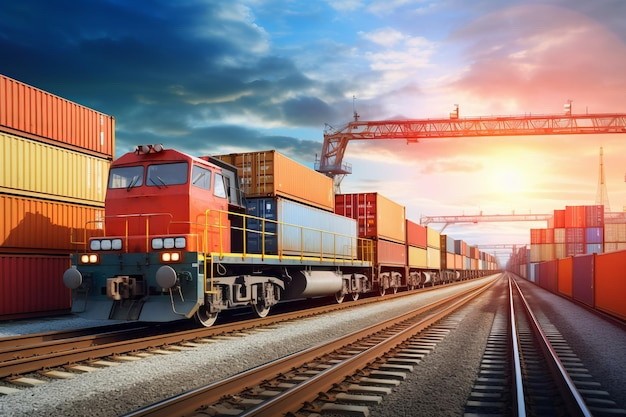BAKU, Azerbaijan, June 25. The recent escalation between Iran and Israel—marked by 12 consecutive days of reciprocal airstrikes—has raised serious concerns across multiple sectors, with international transit and freight transport among those feeling the impact.
While Iranian authorities maintain that cargo flows and transit operations remain unaffected, the broader logistics landscape across the region tells a more complex story. Businesses, logistics firms, and freight operators across Eurasia are closely re-evaluating their routes, with safety and reliability now taking precedence over cost-efficiency.
Risk vs. cost: rethinking the Iranian route
For years, Iran has served as a cost-effective corridor for regional freight, offering relatively short and affordable connections across Central and South Asia. However, in the current context of military tension and unpredictability, the strategic calculus is shifting. Many states and logistics companies are opting to avoid perceived high-risk routes—even if they come with a higher price tag.
From the night of June 13 through the early hours of June 24, Israel reportedly conducted multiple airstrikes targeting Iranian infrastructure across several provinces. In immediate response, Iran closed its airspace and temporarily suspended operations at major airports, forcing a shift to land and sea freight.
This is not the first blow to Iran’s logistics sector in recent months. Back in April, a major explosion at the Shahid Rajaee port container terminal—officially resulting in 57 fatalities and over 1,200 injuries—already disrupted cargo flows and raised concerns about infrastructure security.
Though officials in Tehran downplay the conflict’s impact on freight operations, regional observers and transport companies remain cautious. Any prolonged disruption risks weakening confidence in Iran as a reliable transit hub.
Iranian officials insist: transit continues
Despite the tensions, Iranian officials have reiterated that freight flows remain stable. On June 22, Roads and Urban Development Minister Farzaneh Sadeghi stated that the country’s road, rail, and port infrastructure continues to support the transportation of essential goods and passengers without disruption.
Echoing this, Iran’s chargé d’affaires in Azerbaijan, Seyed Jafar Aghaei Maryan, told reporters in Baku that cargo movements within the framework of the North–South and East–West international transport corridors remain operational. He noted steady activity at border checkpoints, including daily traffic of 300 trucks at Astara and 250 at Bilasuvar.
Iran continues to invest in freight infrastructure, with the 163-kilometer Rasht–Astara railway segment under the North–South Corridor expected to significantly boost rail connectivity once completed. Meanwhile, Iran also remains a key overland route for Russia–India and Russia–China cargo flows via its eastern transit corridors.
Still, since the outbreak of hostilities with Israel, the Iranian government has provided little information about how these transit lines are currently functioning. Uncertainty looms large over the country’s status as a dependable bridge between markets.
Regional states respond
Neighboring countries are responding pragmatically. Azerbaijan’s Land Transport Agency told Trend on June 23 that international road freight continues uninterrupted. Uzbekistan, meanwhile, has highlighted its ability to pivot quickly. Transport Minister Ilkhom Mahkamov noted that the country’s balanced foreign policy enables it to maintain logistics access through alternative routes, including Pakistan’s seaports, the Middle Corridor via Türkiye, and northern connections through Russia and Kazakhstan.
Kazakhstan also weighed in. Deputy Prime Minister Serik Zhumangarin acknowledged the country’s reliance on a single southern rail route through Iran but emphasized that current tensions should not derail trade relations.
Outlook: resilience through diversification
The unfolding situation underscores a critical reality: geopolitical risks are reshaping transit strategies across Eurasia. As freight operators seek resilience, regional diversification of routes is becoming more than a strategic goal—it’s a necessity.
In times of war, no sector is immune. Transport and transit corridors—once seen as stable infrastructure—are now deeply entangled in the region’s shifting geopolitical landscape. Whether Iran can maintain its role as a transit hub will depend not only on infrastructure and pricing but on perceptions of risk, stability, and trust in the months to come.







